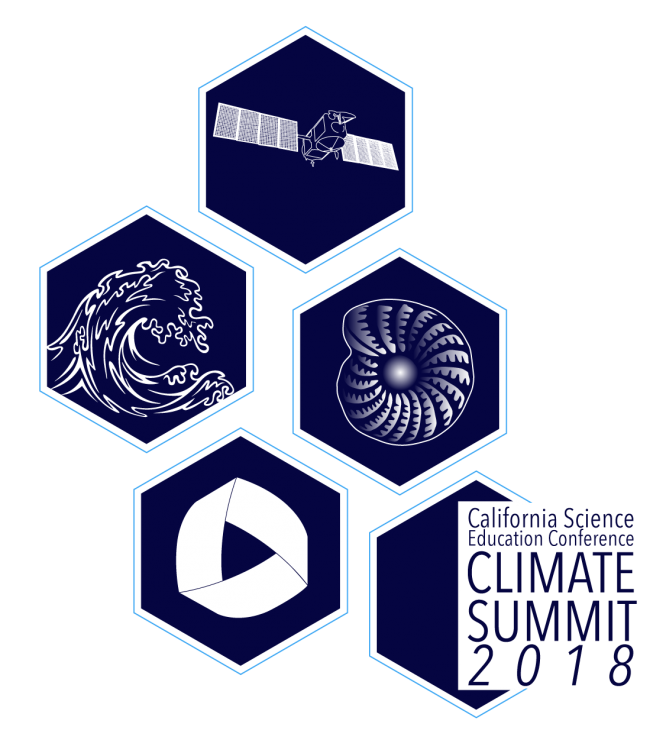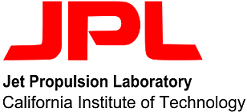About
On Thursday, November 28, 2018, CSTA hosted a full-day event of climate science education to attend to the professional learning needs of classroom science educators and those in a role to support the professional learning of classroom science educators. The day was made possible with support from from the S.D. Bechtel, Jr. Foundation, California Environmental Literacy Initiative, Ten Strands, Scripps Institution of Oceanography, National Science Foundation, and NASA's Jet Propulsion Laboratory.
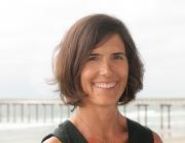
Jane Teranes, Associate Teaching Professor, Scripps Institution of Oceanography
Paleoclimatology - How We Know About Earth’s Climate History
About Jane TeranesJane Teranes is an Associate Teaching Professor at the Scripps Institution of Oceanography, UC San Diego. Jane’s primary research interests are interpreting geochemical proxies of climate change over the last 10,000 years from lake sediment records as a means to better understand current climate change. Most of Jane’s recent work is in building capacity for enhanced undergraduate learning through research and course work in interdisciplinary climate change education. Jane teaches undergraduate courses on climate change, paleoclimatology, and environmental science UC San Diego. She is the program director for undergraduate education for Scripps Institution of Oceanography and faculty director for the UC San Diego interdisciplinary Environmental Systems major and has recently designed a interdisciplinary minor in climate change studies that is approved to start in winter 2019. Jane earned her PhD in Earth Sciences from the Swiss Federal Institute of Technology in Zurich, Switzerland, a Master of Science degree in Geology and Geophysics from University of Wisconsin, Madison, and a Bachelor’s degree in Geology from Oberlin College.
×
Joshua Fisher, Climate Scientist, NASA’s Jet Propulsion Laboratory (JPL)
Interconnected Ecosystems
About Joshua FisherJoshua Fisher is a Climate Scientist at NASA’s Jet Propulsion Laboratory (JPL). His research focus is on land, though he work closely with the atmospheric and ocean scientists. His work synthesizes observations across ecosystems including forests, soils, water and carbon using satellites to observe activity and modeling to predict responses and changes.
Josh has lead field campaigns to the Amazon and Arctic and has engaged artists to interface with the science. His mother is an artist and father a scientist.
×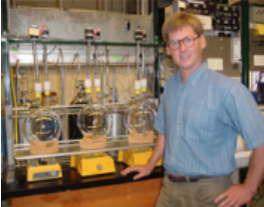
Ralph Keeling, Professor, Geosciences Research Division Scripps Institution of Oceanography
The Anthropocene:
Anthropogenic CO2 and Its Impact on Climate
About Ralph Keeling
Ralph Keeling is professor of geochemistry in the Geosciences Research Division of Scripps Institution of Oceanography, University of California, San Diego. He is the Principal Investigator for the Atmospheric Oxygen Research Group at Scripps and is the director of the Scripps CO2 Program, the measurement program behind the Keeling curve, which was started by his father Charles David Keeling in 1958. His research focuses on atmospheric composition, the carbon cycle, and climate change. He is considered a leading investigator of the global oxygen cycle for his precise measurements and analysis techniques. Keeling developed his method for measuring atmospheric oxygen levels utilizing interferometry techniques in the laboratory. He began pioneering measurements of changes in atmospheric oxygen levels from air samples collected at stations around the world. The measurements continue at nine sampling stations, extending from Ellesmere Island in northern Canada over the equator to two Antarctic stations.
Ralph Keeling received a B.S. in physics from Yale University in 1979. He received a Ph.D. in applied physics from Harvard accurate measurement of atmospheric oxygen.University in 1988 for developing a novel technique for the accurate measurement of atmospheric oxygen.
×
Josh Willis, Project Scientist - Jason-3, NASA’s Jet Propulsion Laboratory (JPL)
OMG, It’s Melting:
Rising Oceans, Melting Ice Sheets, and Looking for Laughs in All the Wrong
Places
About Josh Willis
Josh Willis is a climate scientist at NASA's Jet Propulsion Laboratory in Pasadena, CA. He is the lead NASA scientist for the Jason missions, which measure sea level from space and provide one of the most important measures of human influence on the climate--global sea level rise. Willis is also the lead scientist for NASA's mission Oceans Melting Greenland (OMG). This 5-year long airborne experiment began in 2015 and is measuring changes in Greenland using a radar to map the ice and probes dropped from the aircraft to measure the oceans. OMG is designed to answer the question: To what extent are the oceans responsible for ice loss in Greenland?
Willis is also an enthusiastic communicator of science, particularly climate change. He often uses comedy and humor to convey information about global warming to broad audiences and has even trained to do so. He is a graduate of the Second City Hollywood Improv Conservatory Program and regularly performs in front of live audiences. Although he dreams of career in comedy, he has not yet quit his day job.
×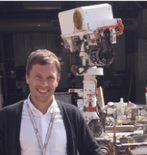
Felix Landerer, Deputy Project Scientist, GRACE Follow-On, NASA’s Jet Propulsion Laboratory (JPL)
Space-Based
Observations, GRACE-FO
- Video of Presentation - Coming Soon!
- Presentation Slide Deck - Coming Soon!
- Website
Dr. Felix W. Landerer is a Research Scientist in JPL's Sea Level And Ice Group and the GRACE Follow-On mission Deputy Project Scientist. He studies the Earth's hydrosphere (e.g., water cycle, sea level, ocean transports, etc.) and its changes using tools like time-variable gravity (GRACE, GRACE Follow -On & geodetic satellites), satellite altimetry, in-situ measurements (tide gauges, GPS sensors). On Earth, the processes that couple water and energy are fundamental to today's most pressing climate science challenges. Tracking Earth's water movement and surface mass changes across the planet, monitoring changes in ice sheets and glaciers, near-surface and underground water storage, the amount of water in large lakes and rivers, as well as changes in sea level and ocean currents provides an integrated global view of how Earth's water cycle and energy balance are evolving, with important applications for everyday life.
Ph.D., Oceanography, Max Planck Institute for Meteorology / University of Hamburg / Intl. Max Planck Research School on Earth System Modelling (2004-2007);
Diploma (M.Sc.), Geophysics, University of Kiel (1998-2004);
×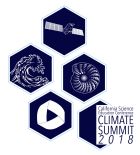
Erik Conway, Historian and Author, NASA’s Jet Propulsion Laboratory (JPL)
Environmental
Literacy
- Video of Presentation - Coming Soon!
- Presentation Slide Deck - Coming Soon!
- Website
I’m a historian of science and technology living in Pasadena, California. I completed a Ph.D. from the University of Minnesota in 1998, with a dissertation on the development of aircraft landing aids. I work as the historian of the Jet Propulsion Laboratory, a unit of Caltech. Most of my work since has been at the intersection of science and technology in the later 20th century, and mostly related to aerospace. My most recent book was Exploration and Engineering: The Jet Propulsion Laboratory and the Quest for Mars, published in 2015. I recently received a Guggenheim Fellowship with Naomi Oreskes.
Prior to graduate school, I served as an officer in the U.S. Navy for four years, serving as a Damage Control Assistant and Acting Chief Engineer on a tank landing ship, and then as an operations officer for COMPHIBRON ONE in San Diego, CA. I downhill ski (mostly at the wonderful Mammoth Mountain in California, though I love Alta too), and scuba dive. I have a 130 gallon coral reef aquarium in my living room. I used to whitewater kayak but haven’t run a river in many years. I practice high power rocketry (NAR Level 2) with the Rocketry Organization of California in my free time.
×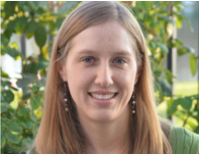
Julie Kalansky, Program Manager and Post-Doctoral Researcher, Center for Western Weather and Water Extremes, California Nevada Application Program, Scripps Institution of Oceanography
Climate Science in
California: From Research to Application
- Video of Presentation - Coming Soon!
- Presentation Slide Deck
- Website
Julie’s research interests stem from trying to understand weather and climate in order to better prepare for extreme events and future conditions. These efforts include using historical observations to understand historical weather variability in the Western US and the impacts associated with this variability as well as future projections of climate variability. She is actively involved with the California 4th Climate Assessment with a focus in sea level projections and the regional application of the information that is coming out of the effort. Julie engages with regional stakeholders to better understand how this climate and weather information can be applied in decision making.
×
